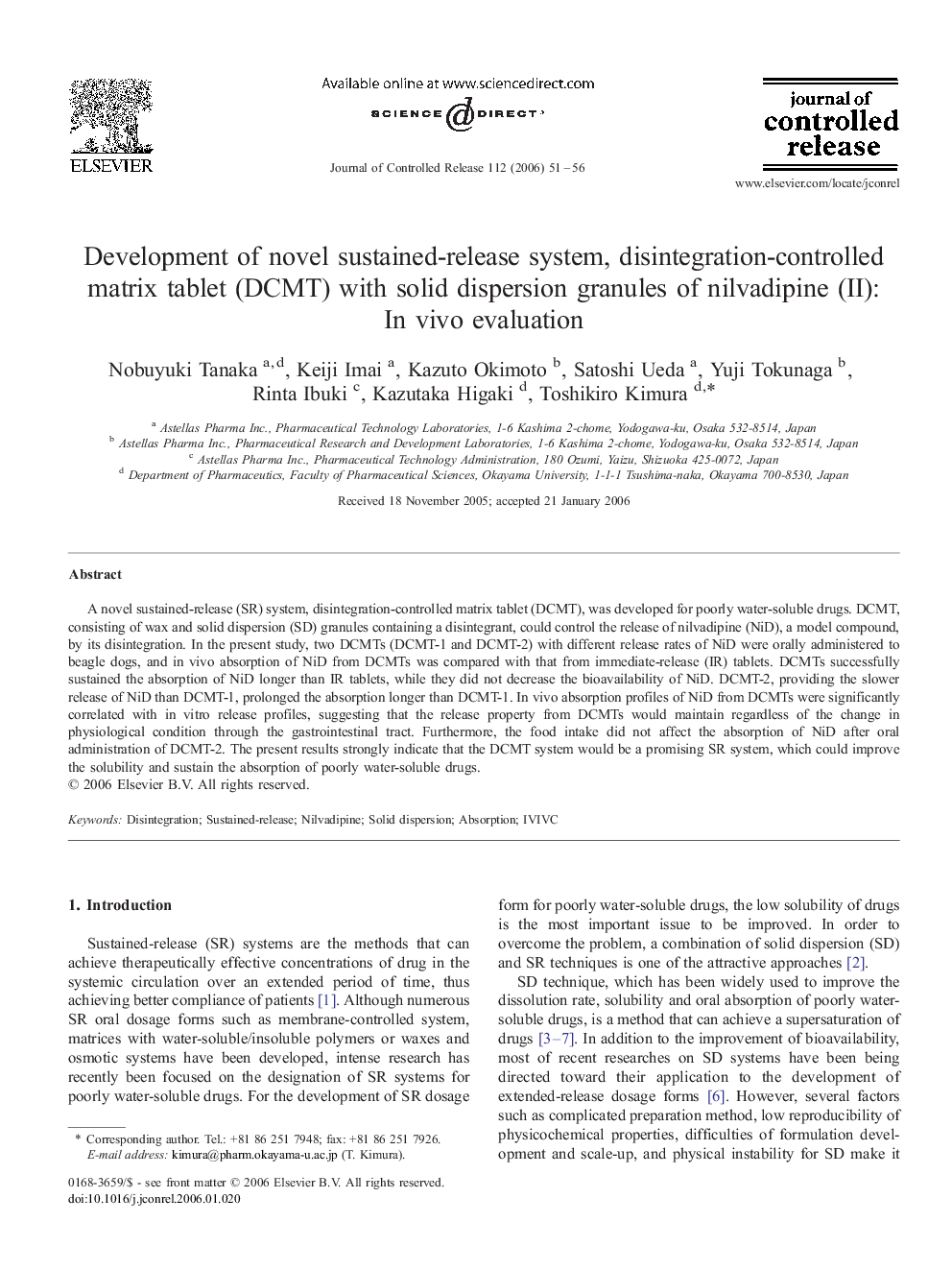| Article ID | Journal | Published Year | Pages | File Type |
|---|---|---|---|---|
| 1427549 | Journal of Controlled Release | 2006 | 6 Pages |
A novel sustained-release (SR) system, disintegration-controlled matrix tablet (DCMT), was developed for poorly water-soluble drugs. DCMT, consisting of wax and solid dispersion (SD) granules containing a disintegrant, could control the release of nilvadipine (NiD), a model compound, by its disintegration. In the present study, two DCMTs (DCMT-1 and DCMT-2) with different release rates of NiD were orally administered to beagle dogs, and in vivo absorption of NiD from DCMTs was compared with that from immediate-release (IR) tablets. DCMTs successfully sustained the absorption of NiD longer than IR tablets, while they did not decrease the bioavailability of NiD. DCMT-2, providing the slower release of NiD than DCMT-1, prolonged the absorption longer than DCMT-1. In vivo absorption profiles of NiD from DCMTs were significantly correlated with in vitro release profiles, suggesting that the release property from DCMTs would maintain regardless of the change in physiological condition through the gastrointestinal tract. Furthermore, the food intake did not affect the absorption of NiD after oral administration of DCMT-2. The present results strongly indicate that the DCMT system would be a promising SR system, which could improve the solubility and sustain the absorption of poorly water-soluble drugs.
